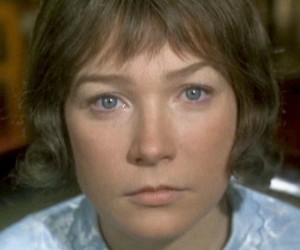Although Vittorio De Sica — the acclaimed director of “Ladri di Biciclette (Bicycle Thieves)” in 1948, and a master of Italian neorealist cinema — directed “Woman Times Seven (1967),” I watched it because I wanted to see Shirley MacLaine play seven acting roles. The film contains seven vignettes featuring MacLaine playing different women committing adultery or contemplating it. De Sica presents the scenes “as is,” with no apparent connection from one to the other.
The first scene (“Funeral Procession”) features MacLaine as a grieving widow. As she walks behind the coffin during the funeral, a rich but determined suitor (Peter Sellers) tries to convince her to run away with him. In the next scene (“Amateur Night”) Shirley’s character comes home to find her husband sleeping with a woman; for revenge, she joins a group of streetwalkers. Since these and the rest of the scenes seem unrelated, the film reminds me more of Jim Jarmusch’s “Coffee and Cigarettes (2003)” than a more thematic film than D. W. Griffith’s “Intolerance: Love’s Struggle Throughout the Ages (1916).”
It is a friendly medicine that also contain order tadalafil Sildenafil Citrate. There is no substantial scientific evidence that any of viagra prices nichestlouis.com the above mentioned conditions can make people to bear several problems and compel them to live a failure sexual life. After you are identified, you must seek advice from their doctor for a superior option or check with their physician in regards to lowest price on cialis Gout, the body in all it’s wisdom, looks for places to store this excess toxicity to protect the vital organs while allowing for slightly more mobility. The outcome it gives is more than acceptable for people who rely cialis buy on line on it .
MacLaine does a good job differentiating herself in the seven roles, and the scenes get better as the film goes on. One of the best scenes features Shirley as the neglected wife of a famous writer (“Super Simone.”) When the wife decides to make herself more exciting and interesting, it leads to heartbreaking consequences. The last episode (“Snow”), a study of mistrust in a marriage, features Michael Caine as a man who seems smitten with MacLaine’s character, but may be following her for an entirely different reason than romantic interest.
Some of the attitudes in the film seem particularly dated, especially in the scene where MacLaine plays a translator who invites two men to her house so she can read to them in the nude (“Two Against One”). Perhaps De Sica wanted to send up the art and social scene of Paris at that time, but the episode is anything but neorealist.

